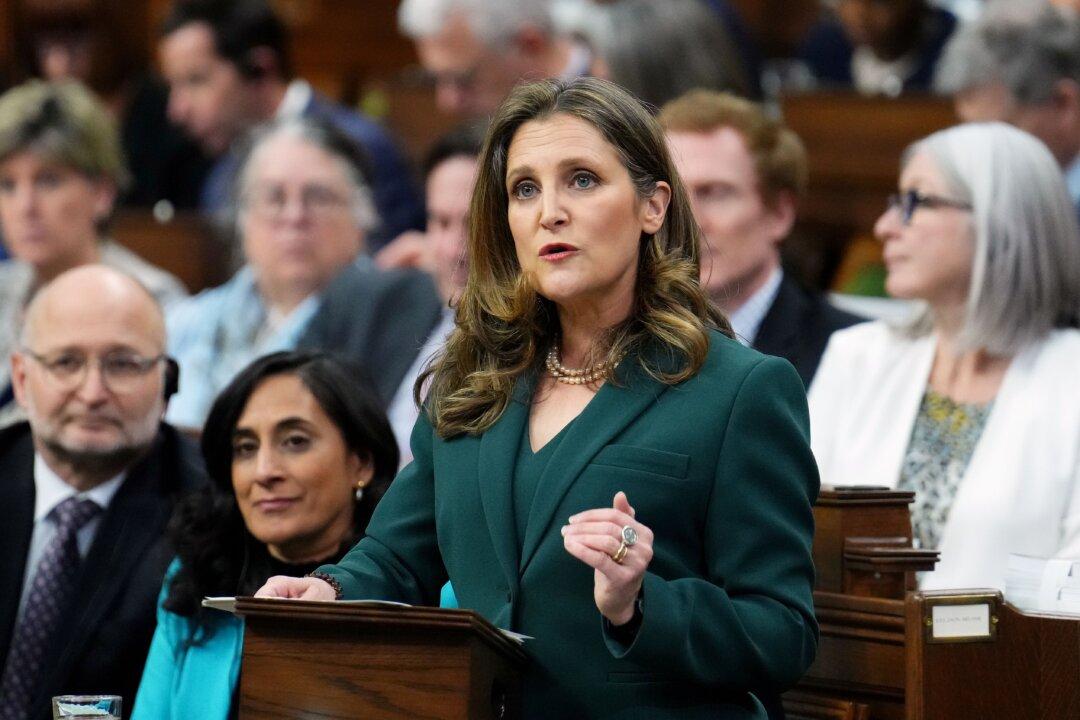Conservative Leader Pierre Poilievre said his party won’t be voting for the newly tabled federal budget, while NDP Leader Jagmeet Singh said his party will vote in favour of the commitments in the budget he “forced this government to deliver.”
“Today’s budget by the costly coalition of the NDP-Liberals is a full-frontal attack on the paychecks of hardworking Canadians,” Poilievre said to reporters following Finance Minister Chrystia Freeland’s budget delivery on March 28.





